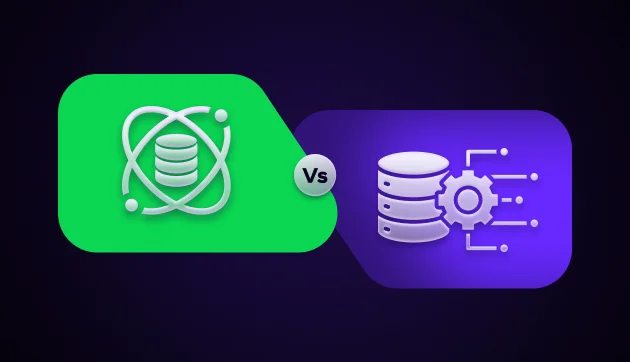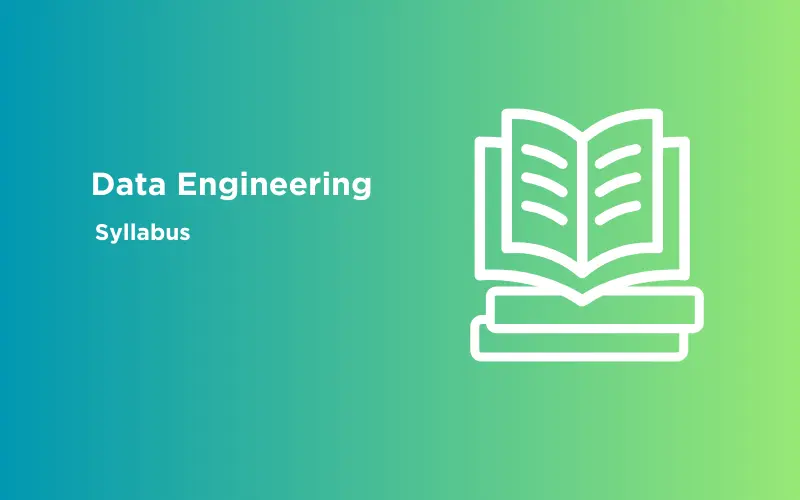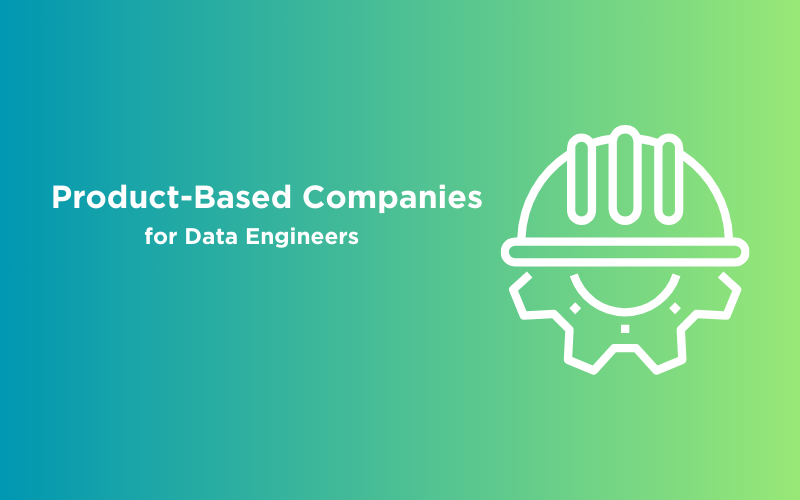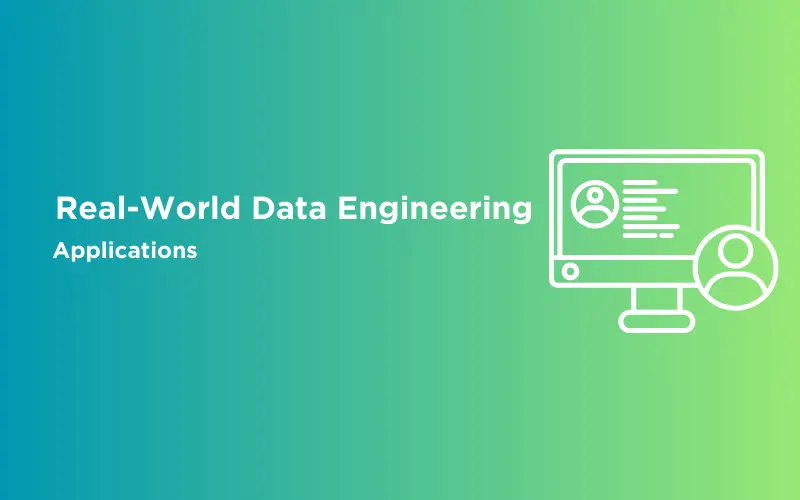
Scope of Data Engineering in India in 2025
Mar 15, 2025 4 Min Read 7833 Views
(Last Updated)
Have you ever wondered about data engineers who are behind the data-driven revolution sweeping across India’s industries? Have you ever wanted to become one but did not do so as you don’t know the scope of data engineering in India?
As we navigate the digital era, data engineers play a pivotal role and utilize the power of data to drive innovation, efficiency, and growth. In this article, we are going to learn in-depth about the scope of data engineering in India along with its salary range and the advantages of joining a certified data engineering course as that can help you clear out your mind. So, let’s get started.
Table of contents
- Scope of Data Engineering in India: Trends and Opportunities
- Rapid Growth of Data
- Cloud Computing
- Big Data Technologies
- Machine Learning Integration
- Remote Work and Global Opportunities
- Salary Range of a Data Engineer in India
- Advantages of Joining a Certified Data Engineering Course
- Conclusion
- FAQ
- What is the role of a data engineer?
- What are the key skills required to become a data engineer in India?
- What are some emerging trends in data engineering in India?
- What is the demand for data engineers in India's job market?
- How can aspiring data engineers in India prepare for this career?
Scope of Data Engineering in India: Trends and Opportunities

In the evolving landscape of technology and business, the scope of data engineers in India is remarkable, driven by emerging trends and exciting opportunities. In this section, we listed down all the trends and opportunities available for a Data Engineer in India:
1. Rapid Growth of Data
The rapid development of digital technologies has led to increased growth in data generation across diverse sources, such as social media, IoT devices, and e-commerce platforms. In the context of data engineering, this surge in data presents a dynamic view where professionals involved in collecting, curating, processing, and managing data are in high demand.
Data engineers play a pivotal role in creating robust data pipelines, designing efficient storage systems, and implementing data processing workflows that seamlessly handle the influx of data.
This data needs to be collected, stored, processed, and analyzed, creating a huge demand for skilled data engineers.
The data engineering domain becomes increasingly intricate as it intersects with data governance and security, and the implementation of strict security measures to safeguard the integrity and confidentiality of the data.
2. Cloud Computing

Cloud platforms like AWS provide flexible and scalable infrastructure for data storage and processing. Data engineers need to be proficient in setting up cloud-based data warehouses, utilizing serverless computing for data processing, and integrating cloud-native services to enhance the efficiency of data pipelines.
Cloud skills allow organizations to adapt to changing data demands while optimizing costs with the help of tools like Google Cloud that aim to give seamless user experience at affordable costs.
Embracing cloud-based solutions like Azure helps in scaling data storage and processing, and developing real-time streaming pipelines to extract timely insights.
3. Big Data Technologies
Traditional databases often struggle to handle the scale and variety of data generated today. Data engineers need expertise in big data technologies like Hadoop and Spark, which enable distributed processing of large datasets.
These tools allow data engineers to manage and process data efficiently, making it usable for analysis and reporting.
Big Data technologies play a crucial role in data engineering by addressing the challenges of processing and managing large volumes of data.
These technologies enable data engineers to collect, store, process, and analyze massive datasets that are beyond the capabilities of traditional data processing tools.
4. Machine Learning Integration

Machine learning integration in data engineering involves seamlessly incorporating machine learning models into data pipelines for effective data preparation and feature engineering.
Data engineers play a pivotal role in cleaning, transforming, and structuring raw data to be suitable for model training. They ensure that data flows smoothly from various sources to machine learning algorithms by performing tasks like data normalization, handling missing values, encoding categorical variables, and creating relevant features.
This collaborative effort between data engineers and data scientists ensures that machine learning models receive high-quality, well-prepared data, leading to improved model accuracy and performance when making predictions or generating insights.
5. Remote Work and Global Opportunities
The COVID-19 pandemic has demonstrated the viability of remote work, opening up opportunities for data engineers to collaborate with international teams and work for global companies without geographical constraints. This flexibility allows professionals to tap into a broader range of projects and collaborations.
The field’s technical nature allows data engineers to effectively work remotely, leveraging communication tools, version control systems, and cloud-based platforms to develop, maintain, and optimize data pipelines and infrastructure.
This trend broadens the horizons for data engineers, enabling them to tap into a wider array of job opportunities, gain exposure to different industries, and share expertise across borders while embracing the evolving landscape of remote work practices.
Salary Range of a Data Engineer in India

The salary range for data engineers in India can vary significantly based on factors such as experience, location, industry, company size, and the specific skillsets required for data engineers. However, we can provide you with a general idea of the salary range you might expect for data engineers in India:
- Junior level Data Engineer (0-2 years of experience): The salary range for junior data engineers in India can vary from approximately ₹3,00,000 to ₹8,00,000 per year, depending on the factors mentioned above.
- Mid-level Data Engineer (2-5 years of experience): Mid-level data engineers with a few years of experience can expect a salary range of around ₹6,00,000 to ₹15,00,000 per year.
- Senior Data Engineer (5+ years of experience): Senior data engineers, with significant experience and expertise, can command higher salaries. The salary range for senior data engineers in India can vary from ₹10,00,000 to ₹25,00,000 or more per year.
It is important to note that these figures are approximate and the actual salary range can vary based on the current job market, industry demand, economic conditions, and the growth of the data engineering field in India since then. Additionally, certain locations, such as metropolitan cities, may offer higher salaries due to the cost of living.
Advantages of Joining a Certified Data Engineering Course

Joining a Big Data and Cloud Analytics Course offers several advantages that can help you develop the necessary skills and knowledge to excel in the field of data engineering. Here are some key advantages:
- Structured Learning: Certified courses provide a structured curriculum designed by experts in the field. This ensures that you receive a comprehensive and well-organized education covering all relevant aspects of data engineering.
- Industry-Recognized Skills: Completing a certified course demonstrates to potential employers that you have acquired a certain level of expertise and knowledge in data engineering. This can boost your credibility and make you a more attractive candidate for job opportunities.
- Hands-On Experience: Many certified data engineering courses include hands-on projects, labs, and real-world scenarios. This practical experience helps you apply theoretical concepts to actual data engineering tasks, enhancing your problem-solving skills.
- Current Industry Trends: Reputable courses often update their curriculum to reflect the latest tools, technologies, and trends in data engineering. This ensures that you learn about the most relevant and up-to-date practices.
- Networking Opportunities: Certified courses provide opportunities to interact with instructors and fellow students who are also interested in data engineering. This can lead to valuable networking connections and discussions that enhance your learning experience.
- Access to Resources: Certified courses often provide access to learning materials, resources, and tools that might be difficult to acquire on your own. This can include textbooks, software licenses, and online platforms.
- Resume Boost: Adding a certified data engineer course to your resume can make you stand out to potential employers, especially if you’re entering the field without prior data engineering experience.
- Career Advancement: For those already working in the field, a certified course can contribute to your professional growth by filling knowledge gaps, learning new techniques, and staying updated with advancements in the industry.
- Validation of Skills: A certification from a reputable course validates your skills and knowledge in data engineering. It shows that you have undergone formal training and assessment, which can instill confidence in both employers and clients.
- Global Recognition: Many certified courses are recognized internationally, allowing you to pursue job opportunities not only in your home country but also in other parts of the world where data engineering expertise is in demand.
- Transitioning Careers: If you’re looking to switch careers to data engineering, a certified course can provide you with a structured path to acquire the necessary skills, making the transition smoother and more efficient.
Conclusion
In conclusion, the scope of data engineers in India is undeniably expansive and promising. With the escalating reliance on data-driven decision-making across industries, the role of data engineers has become integral to harnessing the potential of information.
As businesses continue to generate huge amounts of data, the demand for skilled professionals capable of collecting, processing, and deriving insights from this data remains consistently high.
As India’s economy accelerates its journey towards becoming data-centric, the opportunities for data engineers to shape innovations, drive efficiencies, and contribute to transformative growth remain unprecedented.
FAQ
A data engineer is responsible for designing, constructing, and maintaining the systems and pipelines that enable the collection, storage, processing, and analysis of large volumes of data for organizations.
Essential skills for data engineers in India include proficiency in programming languages like Python, knowledge of SQL and NoSQL databases, expertise in big data technologies (Hadoop, Spark), and familiarity with cloud platforms like AWS and Azure.
Emerging trends in India’s data engineering landscape include real-time data processing, machine learning integration, DataOps practices, and advanced analytics. These trends shape how data engineers manage and leverage data for insights.
The demand for data engineers in India is high and growing. As more companies recognize the value of data-driven insights, they seek skilled data engineers to build and manage the infrastructure required for effective data utilization.
Aspiring data engineers can start by gaining expertise in programming languages, databases, and big data technologies. They can also pursue certified courses, participate in data-related projects, and stay updated with industry trends to excel in their career journey.
























Did you enjoy this article?